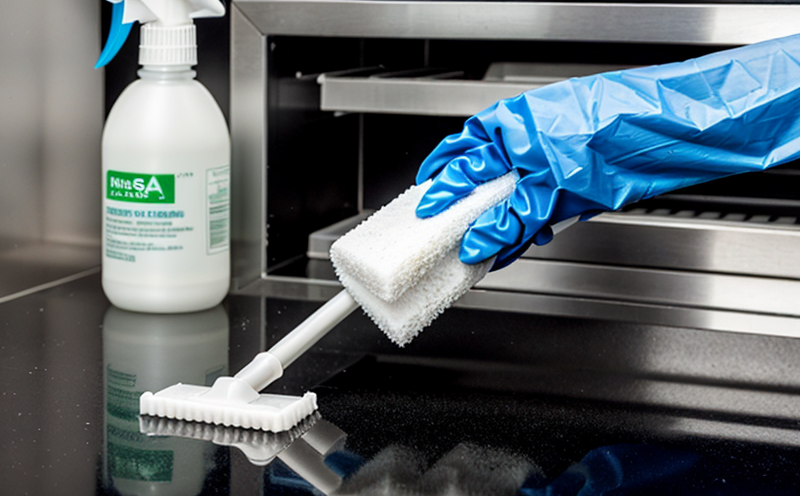ASTM E2721 UV Resistance and Antimicrobial Testing of Plastics
The ASTM E2721 standard is a critical tool for the polymer and plastics industry, ensuring that materials used in products intended to be exposed to ultraviolet (UV) radiation possess the necessary resistance to degrade. This service focuses on evaluating the UV stability of plastic materials, which are often found in outdoor applications like signage, medical devices, and consumer goods.
Additionally, ASTM E2721 also assesses the antimicrobial properties of plastics, a growing concern in sectors such as healthcare where hygiene is paramount. By ensuring that plastic components do not become breeding grounds for microorganisms, this service supports industries aiming to protect public health.
The testing procedure involves exposing specimens under controlled conditions to UV radiation. This process simulates real-world environmental stressors and helps manufacturers understand the long-term performance of their products. The results provide valuable data on how well materials withstand exposure without compromising functionality or safety.
For quality managers, compliance officers, R&D engineers, and procurement professionals, this service is essential for ensuring product integrity and meeting regulatory requirements. It allows them to make informed decisions about material selection, process optimization, and supplier evaluation. The insights gained from ASTM E2721 testing can significantly impact the longevity and reliability of products in demanding environments.
The standardization provided by ASTM ensures consistent and reliable outcomes across different laboratories worldwide. This consistency is crucial for industries that operate globally, as it guarantees uniformity in product specifications and performance metrics.
Understanding the nuances of this testing process can help stakeholders anticipate challenges and develop strategies to mitigate them. For instance, knowing how certain additives or processing methods influence UV resistance can lead to innovative solutions tailored specifically for UV-sensitive applications.
In summary, ASTM E2721 is not just a test method; it's a cornerstone in ensuring that plastics used in everyday products meet the highest standards of durability and hygiene. Its significance lies in its ability to bridge laboratory results with real-world performance, providing confidence that materials will perform reliably over extended periods.
By leveraging ASTM E2721 testing, organizations can enhance their competitive edge by delivering superior quality and safety standards. This approach fosters trust among consumers and regulatory bodies alike, reinforcing the reputation of brands committed to excellence in product development.
Industry Applications
- Outdoor signage
- Medical devices
- Consumer goods packaging
- Sports equipment handles
- Automotive exterior components
- Electrical insulation materials
- Wearable medical technology
- Hygiene products for healthcare facilities
The versatility of ASTM E2721 makes it indispensable across various industries where UV resistance and hygiene are critical factors. These applications highlight the broad impact this testing method has on enhancing product performance and safety.
Quality and Reliability Assurance
The ASTM E2721 testing ensures that plastics used in outdoor environments and medical devices maintain their integrity over extended periods. By subjecting samples to controlled UV radiation, this service provides critical data on the long-term stability of materials.
For quality managers, this means having access to robust evidence supporting the reliability of products under real-world conditions. Compliance officers benefit from knowing that their organization meets stringent regulatory standards related to material durability and hygiene.
R&D engineers can use these test results to refine formulations and processes, ensuring optimal performance in challenging environments. Procurement professionals gain assurance that suppliers meet high-quality benchmarks, reducing risks associated with substandard materials.
The rigorous nature of ASTM E2721 testing instills confidence in both internal teams and external stakeholders regarding the quality and reliability of products. This trust is essential for maintaining brand reputation and customer satisfaction.
Environmental and Sustainability Contributions
Evaluating UV resistance and antimicrobial properties through ASTM E2721 contributes significantly to environmental sustainability efforts. By ensuring that plastics used in outdoor applications last longer, the need for frequent replacements is reduced, thus minimizing waste.
The test also helps identify materials that can resist microbial growth effectively, reducing the risk of contamination. This capability is particularly beneficial in healthcare settings where maintaining hygiene standards is crucial.
By promoting the use of durable and hygienic plastics, ASTM E2721 supports circular economy principles by encouraging the reuse and recycling of materials without compromising on quality or safety.
The insights gained from this testing can drive innovation towards creating more sustainable products. For instance, manufacturers may explore new additives that enhance UV resistance while maintaining biodegradability characteristics.
In conclusion, ASTM E2721 plays a vital role in advancing environmental sustainability by fostering the development of materials that are both robust and environmentally friendly.





